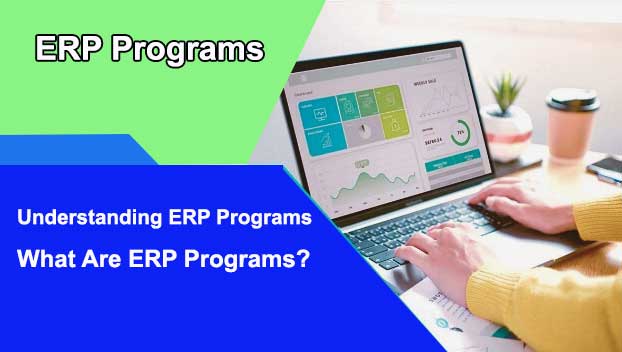In the contemporary world of business, efficiency and productivity are paramount. Companies, regardless of their size or industry, are constantly seeking ways to optimize their operations, manage resources effectively, and adapt to changing market dynamics.

One solution that has gained immense popularity is the utilization of Enterprise Resource Planning (ERP) programs. This article delves into the world of ERP programs, exploring their features, benefits, and the profound impact they can have on your business.
Understanding ERP Programs
What Are ERP Programs?
Enterprise Resource Planning (ERP) programs are a category of software solutions designed to help businesses manage and streamline their core functions. These integrated systems provide a holistic view of an organization’s processes, from finance and inventory to human resources and customer relationship management. They are instrumental in ensuring data accuracy, informed decision-making, and efficient resource allocation.
The Evolution of ERP
The history of ERP programs can be traced back to the 1960s when businesses began automating their processes. Over the decades, ERP programs have evolved into modern, user-friendly platforms that empower organizations to revolutionize their operations.
Key Features of ERP Programs
Integration and Customization
One of the key features of ERP programs is their ability to integrate with various departments and systems within an organization. This integration allows for seamless data flow and process automation. Furthermore, ERP programs can be customized to fit the unique needs of different businesses, making them a versatile choice for companies of all sizes.
Streamlined Business Processes
ERP programs are renowned for their capacity to streamline diverse business processes. From managing inventory and sales to human resources and production, these systems significantly reduce manual effort and the likelihood of human errors.
Real-time Data Analytics
ERP programs provide real-time insights into an organization’s activities. This empowers decision-makers to base their choices on accurate, up-to-the-minute data, a critical capability in a rapidly changing business environment.
Mobile Accessibility
In an era where mobility is key, ERP programs offer mobile accessibility. This means that businesses can monitor and manage their operations from anywhere, ensuring that they stay responsive to market shifts and customer demands.
The Benefits of Implementing ERP Programs
Enhanced Efficiency
One of the primary benefits of ERP programs is their ability to enhance efficiency. By automating and optimizing various processes, businesses can reduce manual work and allocate resources more effectively. This leads to improved productivity and cost savings.
Better Decision-Making
ERP programs empower decision-makers with real-time data and insights. This ensures that choices are well-informed and aligned with business objectives, ultimately leading to better outcomes.
Enhanced Customer Relationship Management
ERP programs often include modules for managing customer relationships. This enables businesses to better understand their customers’ needs and preferences, resulting in improved service and products.
Regulatory Compliance
For businesses operating in regulated industries, ERP programs help maintain accurate and auditable records, ensuring compliance with industry standards and government regulations.
Implementing ERP Programs in Your Business
Vendor Selection
Selecting the right ERP program vendor is crucial. Look for a vendor with a proven track record, strong customer support, and a software solution that aligns with your business’s needs.
Employee Training
Comprehensive training for your employees is essential for a smooth transition to an ERP program. This ensures that your staff can harness the system’s capabilities to the fullest.
Data Migration
Migrating existing data to the new system should be executed with precision to prevent data loss or corruption. Engage experienced professionals to manage this process.
Conclusion
ERP programs are transformative tools for businesses, offering streamlined processes, real-time insights, and enhanced decision-making. To remain competitive in today’s dynamic business landscape, consider implementing an ERP program in your organization. It has the potential to revolutionize your operations, making them more efficient, cost-effective, and ultimately contributing to your business’s growth and success.
FAQs
- Can small businesses benefit from ERP programs?
- Absolutely. ERP programs can be customized to meet the specific needs of small businesses, making them a valuable asset for growth and efficiency.
- How long does it take to implement an ERP program in a business?
- Implementation timelines can vary based on the size and complexity of the organization, but it typically takes several months to ensure a smooth transition.
- Is it essential to integrate an ERP program with other systems like CRM or HR software?
- Integration can enhance the functionality of ERP programs, providing a more comprehensive view of your business. However, it’s not mandatory and depends on your specific requirements.
- What costs should a business anticipate when implementing an ERP program?
- Costs can vary significantly depending on factors like the size of your organization and the specific ERP program you choose. It’s advisable to obtain quotes from potential vendors.
- Are ERP programs only suitable for specific industries?
- ERP programs are versatile and can be adapted for various industries. They are most commonly used in manufacturing, distribution, and service sectors but can benefit a wide range of businesses.